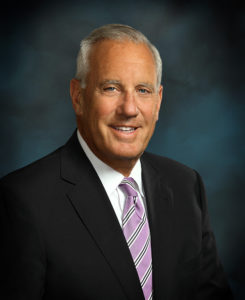For physicians, the business of the day is about caring for patients. But there is that nagging aspect of practice that is truly business in nature – staff supervision, contract negotiation and conflict resolution. Medical school teaches anesthesiologists very little about these skills.
7:30 a.m.–4:15 p.m.
Friday
Orange County Convention Center

Jeffrey S. Vender, M.D. M.C.C.M., FCCP, M.B.A.
ANESTHESIOLOGY 2019 will provide that guidance during the Friday Master Class developed by ASA and the American College of Healthcare Executives (ACHE), “Communication, Negotiation and Teamwork.” Jeffrey S. Vender, M.D. M.C.C.M., FCCP, M.B.A., is among the speakers at the class, which requires advance registration and a minimal fee. Dr. Vender is a Clinical Professor of Anesthesiology at the University of Chicago Pritzker School of Medicine and earned his M.B.A. from Northwestern University Kellogg School of Management. Well-versed on topics in anesthesiology, critical care and organizational change, Dr. Vender will speak to the issue of negotiation and tips for success.
“Like many, you may not think you are a negotiator, but everyone negotiates (something), they just might not realize it,” Dr. Vender said. “Negotiating (non-sales selling) is a part of daily life. Some people like negotiating, many people avoid it, but everyone can get better at it.”
According to Dr. Vender, negotiations are not just relegated to arbitrators, lawyers and politicians. Whether you realize it or not, any time you cannot get what you want without the cooperation of somebody else, you are negotiating. Many find the process of negotiation distasteful, he said. So how can we do it better?
“Successful negotiations typically necessitate a degree of trust to achieve the openness and understanding necessary for effective communications and collaboration,” Dr. Vender said. “Watching the conduct of our political leaders in their dealings over health care, debt ceiling, fiscal cliffs and even the NHL lockout makes clear that the cooperation and trust necessary is often missing or grossly compromised.”
Negotiation doesn’t come naturally, he said. It begins with preparation and practice. Dr. Vender draws on his own experience to offer another important aspect of negotiation – know your BATNA (Best Alternative to a Negotiated Agreement). Typically we always have a BATNA. A marginal one compromises one’s ability to seek an optimal solution. Prior to an important negotiation, he said, work to improve your BATNA options and your source of power.
While Dr. Vender will offer a variety of negotiation tips, ultimately it comes down to one tip.
“Preparation and practice makes perfect,” he said.
The Master Class includes a panel of speakers who will share tips for identifying tactical negotiation methods, developing techniques to bypass roadblocks in teams, recognizing appropriate strategies to influence others, identifying novel approaches to develop and facilitate a team and applying current techniques in critical conversations that aid in successful outcomes.
Based on the needs and interests expressed by physician anesthesiologists in attendance, this one-day session will include lectures, interactive forums and case-based strategies that can positively impact patient care outcomes and improve personal performance.
Return to Archive Index